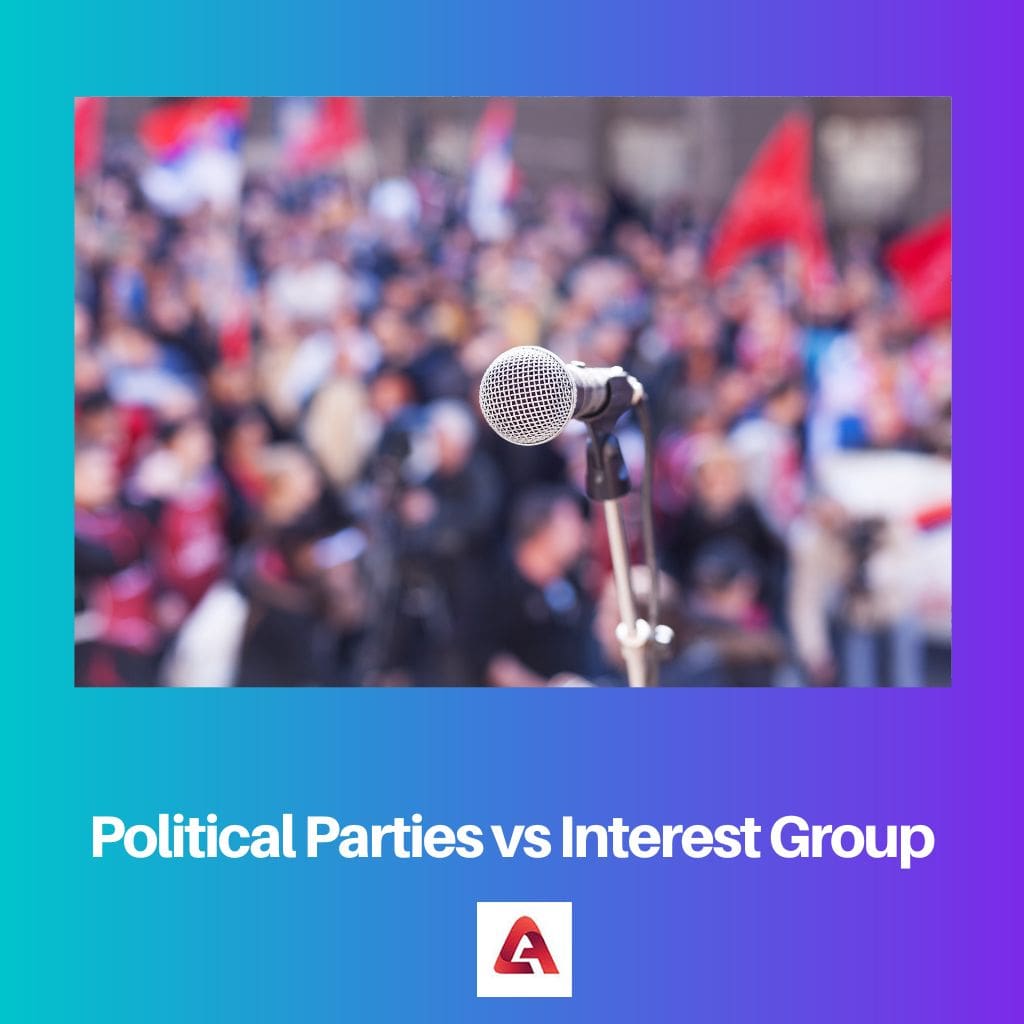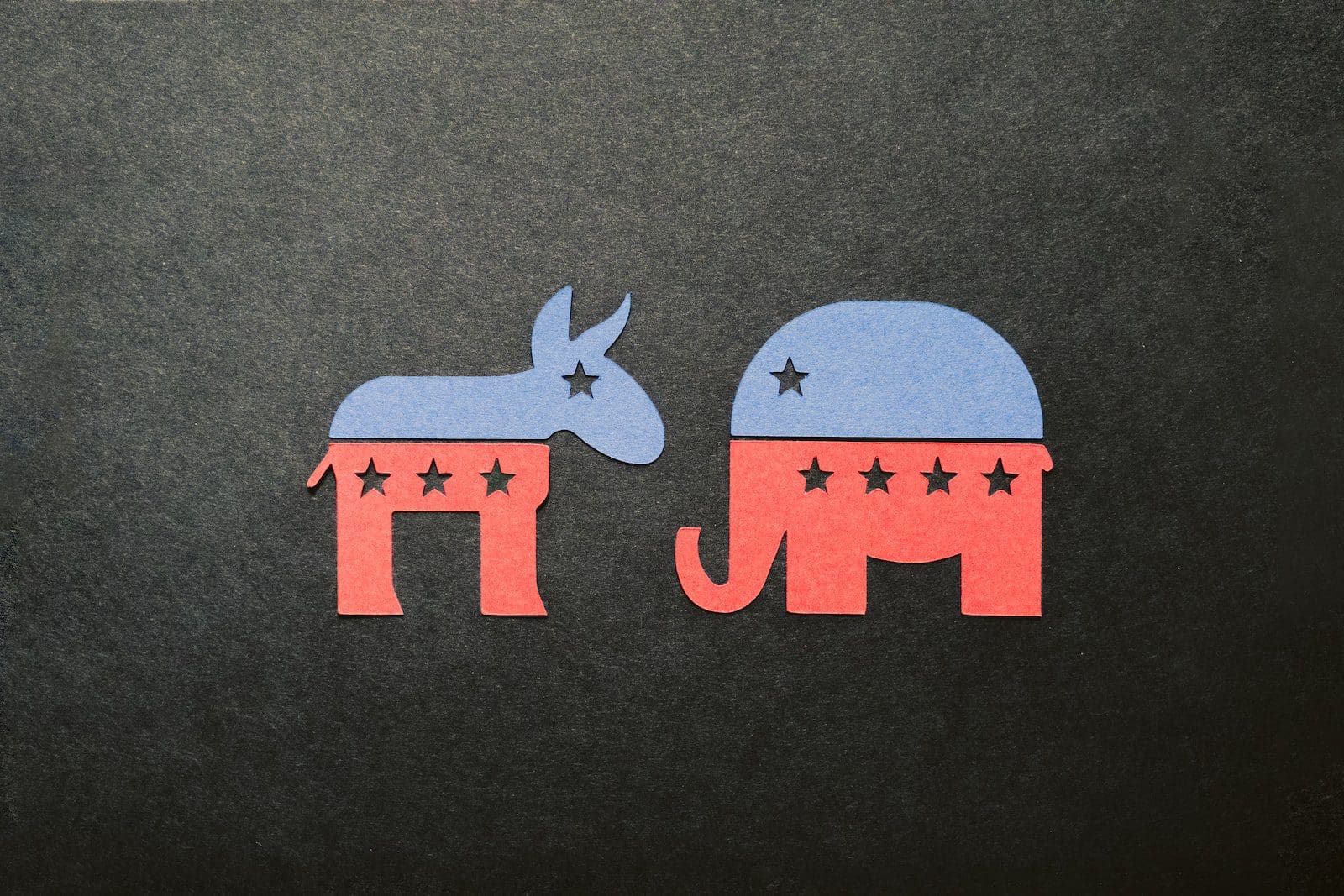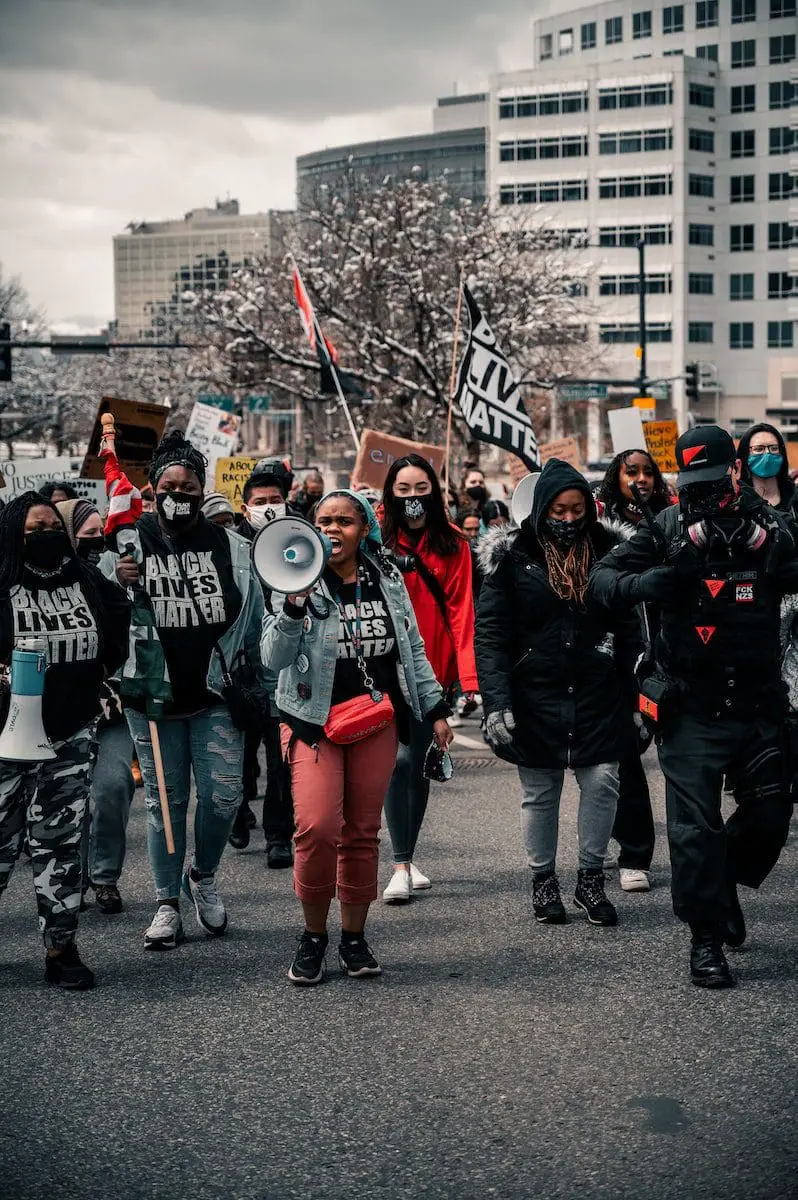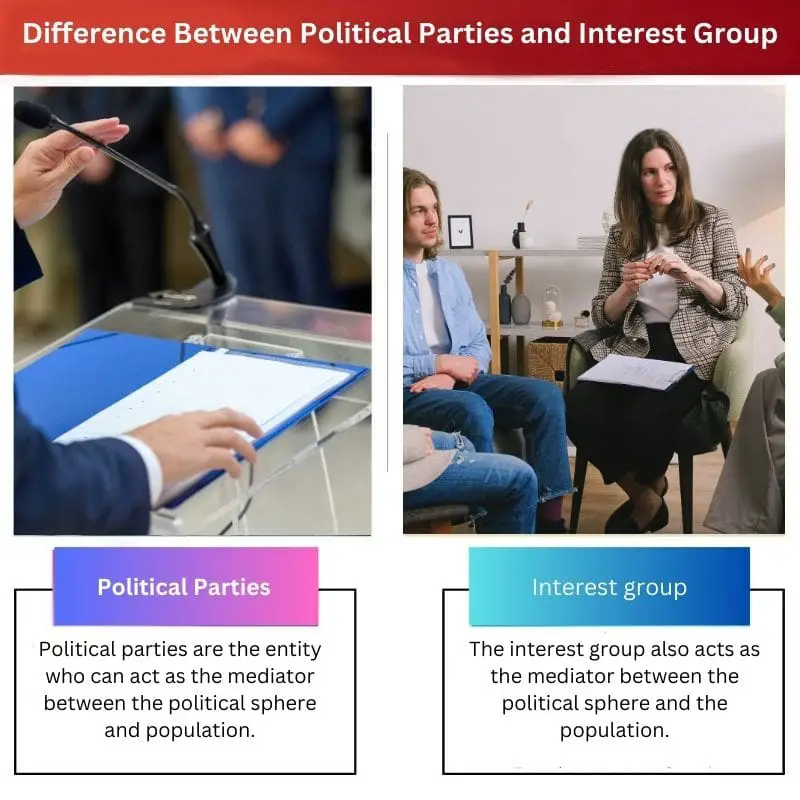Similar terms are confused because they don’t know the difference between the terms. The same thing happened with the terms political parties and interest group people considered both the terms the same, and they thought there was no difference between these terms.
Key Takeaways
- Political parties are organized groups that seek to control government policy by winning elections and holding public office.
- Interest groups advocate for specific causes or policy changes without directly participating in electoral politics.
- While both aim to influence public policy, political parties focus on broader issues, whereas interest groups concentrate on specific interests or policy areas.
Political Parties vs. Interest Group
Political parties seek to gain power through elections and govern by winning control of government institutions. Interest groups do not seek to gain power directly through elections, but rather they seek to influence political decision-making through campaigns and other forms of public engagement.

The political parties are the entity that acts as a mediator between the political sphere and the population. Parties can also mean that people of the country can know the matter on social issues and political terms and are informed about the votes.
It is a group that is extremely involved in persuading the government. They focus on one or two specific matters.
Comparison Table Between Political Parties and Interest Group
| Parameters of Comparison | Political Parties | Interest group |
|---|---|---|
| Meaning | Political parties are the entity that can act as a mediator between the political sphere and the population. | The interest group also mediates between the political sphere and the population. |
| Aim | A political party’s basic aim is to support the candidate from their party and make him win the election. | The interest group aims to influence the government and people’s decisions and take care of the specific matter. |
| Flexible | Political parties are flexible as they attract the crowd to win in the election. | Interest groups are inflexible, as they cannot attract many people in the country. |
| Size | The size of the political parties does not help the parties to win the candidate in the election. | The size of the interest group gives the advantage as they can influence the people’s decisions. |
| Deals to issue | Political parties concentrate on immigration, education, taxes, health care, etc. | Interest parties focus on political, economic, and political changes, the advantages and disadvantages of abortion, and the advantages and disadvantages of abortion. |
What are Political Parties?
These parties focus on the social welfare of the people, equity of rights given to each citizen in the country, taxes fairly paid, maintaining good and healthy foreign relations, and each one has given health care and gun control.
This party’s motive is to gain power by supporting its candidate in the parties so that they can make their own decision on different issues, because of which they are criticized for focusing the interest of politicians first before the needs of the citizen.

What is Interest Group?
An interest group is a group of people who share a similar opinion on matters that come together to affect public opinion.
Interest groups include labor unions, social groups, student unions, corporations, and businesses. This group is involved in environmental matters, minimum wages, and gun control. T

Main Differences Between Political Parties and Interest Groups
- Individuals with common ideals, visions, and goals create political parties and interest groups.
- Both political parties and interest groups focus on political, economic, and political change.

The detailed analysis provides valuable insights into the functions and differences of political parties and interest groups.
The article has certainly broadened my understanding of the nuanced dynamics between the two entities.
Certainly, the article invites critical reflection and intellectual engagement.
The comparison between political parties and interest groups is crucial in understanding the dynamics of governance and influence.
The nuances presented in the article are thought-provoking and relevant to contemporary politics.
Absolutely. It sheds light on two important facets of political systems.
The article offers a substantial contrast between political parties and interest groups, allowing for a comprehensive appreciation of their roles.
Indeed, the distinctions drawn in the article are enlightening and enriching.
This article is insightful in outlining the differences between political parties and interest groups.
The article presents an intriguing dissection of two key components of political systems.
It certainly has deepened my understanding of the subject matter.
The article is indeed thought-provoking and analytically rigorous.
This article provides a comprehensive overview of the topic, making it very informative.
Yes, the content is very well-researched and detailed.
I appreciate the depth of information provided. It’s quite enlightening.
The article presents a detailed analysis, although it could elucidate the potential drawbacks of both political parties and interest groups to offer a more comprehensive view.
It’s an interesting point, and an analysis of their shortcomings would indeed enhance the article.
I agree. An exploration of the limitations of both entities would add depth to the discussion.
The article provides a reasoned and well-articulated comparison between the two entities, offering a balanced perspective.
Indeed, the balanced approach allows for a more comprehensive understanding of the subject.
The clarity and depth of analysis in the article are commendable.
The comparison table provides a clear understanding of the differences between political parties and interest groups.
I found the information on political parties and interest groups very insightful. It broadened my knowledge on the subject.
Yes, it effectively highlights the distinctions between the two.
Interesting article, however, it seems to take a more favorable stance towards interest groups.
I agree. The article seems to lean slightly towards interest groups.
I didn’t notice that, but now that you mention it, it does seem to portray interest groups in a more positive light.